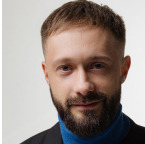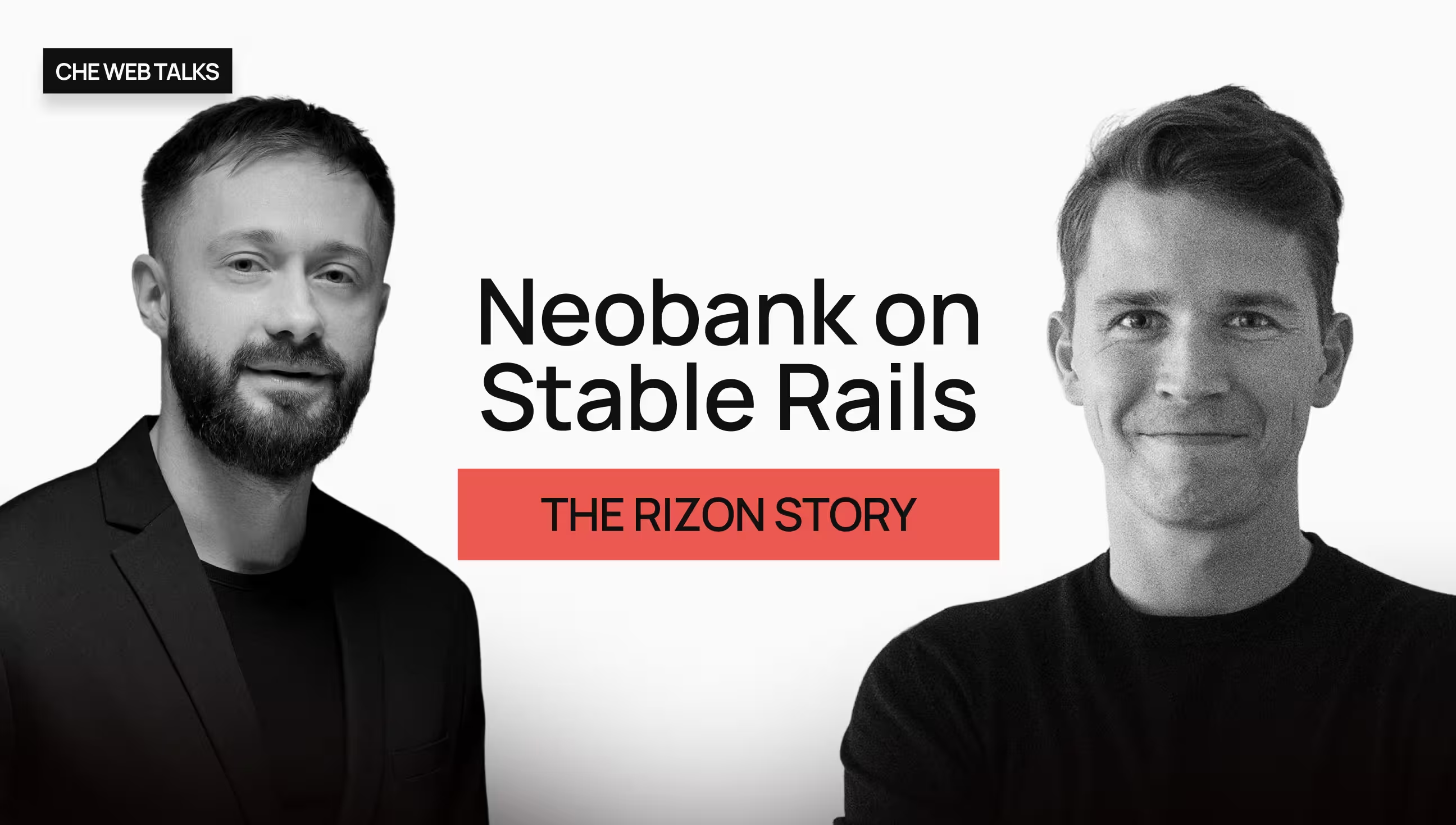
From Task-Driven to Value-Driven: Inside Product Ops | Che Web Talks #2
About
In this second episode of Che Web Talks, Alex Lozytskyi welcomes Myron Kokhanovskyi to discuss shifting from outputs to outcomes in project and product operations. Together, they unpack the difference between outsourcing and product companies, the rise of Product Ops, where AI really helps (and where it doesn’t), and how Notion reshapes modern program management.
Introduction: From Task-Driven to Value-Driven
When Alex reconnects with Myron Kokhanovskyi, it feels like two colleagues looking back on a decade-long journey - from early IT recruitment days to PMO leadership and now Product Ops consulting.
The episode’s theme is clear: stop measuring success by tasks shipped, start measuring by what actually changes for the business and its users.
“In outsourcing, you work for the client. In product companies, you work for the user”. - Myron
That distinction sets the tone. Both outsourcing and product companies deal with the same constraints of scope, cost, and quality. But their “north star” differs: a signed-off scope on one side, a solved user problem on the other.
Outsourcing vs. Product: Same Tools, Different North Star
In outsourcing, project managers succeed when the client is satisfied, timelines are met, and deliverables match requirements. In product companies, the measure of success is whether users stay, churn drops, or revenue grows.
Alex highlights that “requirements met” isn’t always enough:
“Project managers are not just liaisons. We’re responsible for outcomes, not only outputs”.
That subtle but important shift - from outputs to outcomes - is where the conversation stays anchored.
Bringing Product Thinking into Services
What happens when service businesses adopt product-style thinking? Myron explains that it transforms relationships with clients. Instead of being order-takers for a backlog, PMs become partners who ask deeper questions: Why are we building this? What problem does it solve?
He recalls a Salesforce integration case where the request looked like weeks of work. After probing, the real need was simply logging a single event in a database — a one-hour task.
“Knowing the ‘why’ behind a request turns PMs into partners, not ticket managers”. - Myron
By reframing the conversation, the team avoided over-engineering and delivered faster value.
Product Ops: Structure That Aims at Outcomes
Product Operations, Myron explains, isn’t about inventing a new buzzword role — it’s about naming work that has always been essential. Product Ops teams bring structure to product organizations so they don’t drown in busywork.
The role sits at the intersection of project discipline and product vision. It means designing roadmapping cadences, building feedback loops with users, and making sure metrics don’t just track delivery speed but actual business impact.
“Product Ops prevents feature factories. Delivering more features doesn’t always mean delivering more value”. - Myron
Skills and Mindset for Product Ops
Transitioning from project management to Product Ops doesn’t mean leaving core skills behind. Facilitation, planning, and documentation remain pillars. But the mindset shifts: instead of driving every task yourself, you create an environment where others can focus on outcomes without friction.
Myron emphasizes that tools like Notion, Jira, Productboard, or automation platforms matter, but they are secondary. What matters most is the ability to remove chaos and enable teams to work on what really drives results.
He laughs: “I’m known for loving chaos - and then organizing it”. That’s the essence of Product Ops.
AI in Operations: A Tool, Not a Replacement
The rise of AI often triggers fear, especially among PMs worried about being replaced. Myron sees it differently: AI won’t take the job, but those who use it wisely will.
He shares examples of AI helping automate repetitive reports, summarize client feedback across forums and tickets, and highlight risks earlier in delivery. Tools like Zapier, Make, and n8n are already amplifying operational efficiency.
Still, he warns against AI for AI’s sake:
“Sometimes companies force AI where it’s not needed. Start with a problem, keep it simple, and always keep human control”.
Alex adds three ground rules for using AI effectively:
- Identify the real problem.
- Keep automation small and reliable.
- Always keep a human in the loop.
Notion vs. Jira: Which Tool Wins?
Notion has become Myron’s playground - both as a consultant and as one of its Top Creators. Its flexible databases and visual simplicity make it a natural fit for startups and small teams.
But for enterprises, Jira still rules. Its compliance features, integrations, and scalability keep it the default choice for complex environments.
“Start with Notion, switch to Jira when scale demands it. The transition can be smooth if done right”. - Myron
The real takeaway: choose tools based on stage and needs, not trends.
Consulting: Solving the Scale-Up Struggle
In his consulting practice, Myron often steps into companies that are no longer scrappy startups but not yet structured scale-ups. The symptoms are familiar: unclear roles, no shared methodology, messy capacity planning.
By installing product-driven practices and simple operational structures, he helps teams break through the chaos and move faster.
“The problems repeat across industries. What changes is the context. But the cure is often the same: clarity and focus”. - Myron
What Still Excites After a Decade
Alex asks what keeps Myron in the game. The answer is unchanged since day one: solving problems with people. Bringing order to noise, guiding groups to decisions, and watching outcomes move in the right direction - that’s the fuel for both PM and Product Ops.
Closing: Outcomes Over Outputs
The episode closes where it began: with the mindset shift. Whether in outsourcing or product companies, success is not about how many tasks are delivered, but whether those tasks created value.
“If you think like a business owner and focus on outcomes, not just deliverables, you’ll always stay relevant”. - Myron
Che Web Talks will continue spotlighting stories from operators who bridge the gap between activity and impact, reminding us that what really matters isn’t more features - it’s better results.

watch more

let’s make the web talk about your project
Che It Group
representative offices
SWITZERLAND, Zürich, 8004
Baarerstrasse 139 6300 Zugestonia, tallinn, 11317
Kajaka 8, office 26NORWAY, oslo, 0173
Fougstads gate 2
development offices
ukraine, chernihiv, 14000
Kyivs'ka St, 11, office 155ukraine, kyiv, 04071
nyzhniy val str, 15, office 131ukraine, lviv, 79039
shevchenko str, 120, office 17
development offices
ukraine, chernihiv, 14000
Kyivs'ka St, 11, office 155ukraine, kyiv, 04071
nyzhniy val str, 15, office 131ukraine, lviv, 79039
shevchenko str, 120, office 17
Representative offices
SWITZERLAND, Zürich, 8004
Baarerstrasse 139 6300 Zugestonia, tallinn, 11317
Kajaka 8, office 26NORWAY, oslo, 0173
Fougstads gate 2
start with a consultation
Book a call to discuss how we can match you with proper technologies








